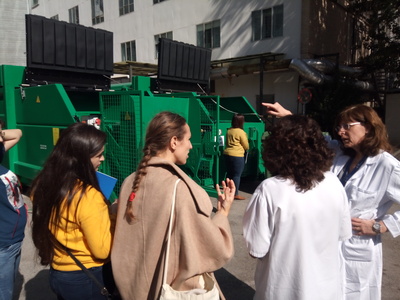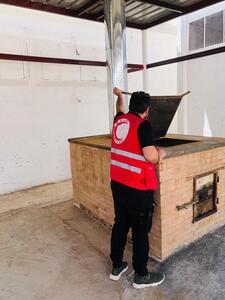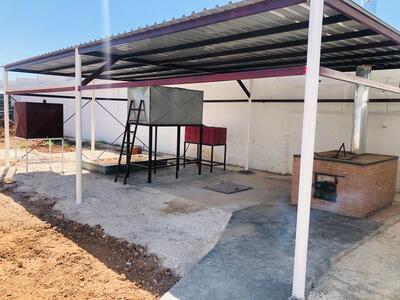Sanitary waste management in north-eastern Syria

Sanitary waste management in north-eastern Syria: supporting tow councils and healthcare facilities in safe and sustainable waste management
Technical details
- Partners:
Un Ponte Per (UPP)
Other collaborating institutions:
- Kurdish Red Crescent (KRC)
- Department of Municipal Affairs and Environment (DME) of the Jazira region
- Action area:
- Near and Middle East . Syria
- Subject:
- Waste cycle, Humanitarian action, Development, Refugees
- Budget:
- 127.700,00 €
- Financing:
-
-
€127,700.00
-
- Status:
- In progress Done
Description
In the context of the armed conflict in Syria, the newly autonomous local institutions in the area of Northern and Eastern Syria (NES) are working to protect and guarantee fundamental human rights (such as the right to life, the right to health and well-being, and the right to fair and just working conditions). One of the challenges that has been prioritised is the improvement of waste management.
Within this framework, the project was undertaken based on a two-pronged approach:
-Incorporation of a safe and sustainable sanitary waste management system in three health centres in Qamishli, Tal Tamer and Amuda.
The Kurdish Red Crescent and health service providers in the Jazira region were supported in order to enhance their ability to incorporate a safe and sustainable sanitary waste management system. Appropriate facilities were built, which were equipped with standard incinerators, glass crushers and biological waste pits for infectious and hazardous sanitary waste. Health centre staff were trained in sanitary waste management according to international protocols.
- Reinforcement of municipal teams' skills in waste management, and recycling in particular.
Support was provided for municipalities in NES and health sector stakeholders in the Jazira region (the Al-Hasakah Governorate) to ensure environmental protection and a safe and sustainable sanitary waste management cycle. Work was also done to increase the capacity of municipalities in terms of municipal waste management and to promote the exchange of knowledge between the AMB waste team and staff in the municipalities and the Department of Municipal Affairs and Environment (DME) of the Jazira region.
The project aimed to support the 335,490 people living in the areas of Qamishli, Amuda and Tal Tamer, 36% of whom are under 18 years of age, and around 55% of whom are women. The population is Kurdish (57%), Arab (20%) and Syrian or Assyrian (23%) and practises several religions: Muslim (77%), Christian (20%) and Yazidi (3%).















































